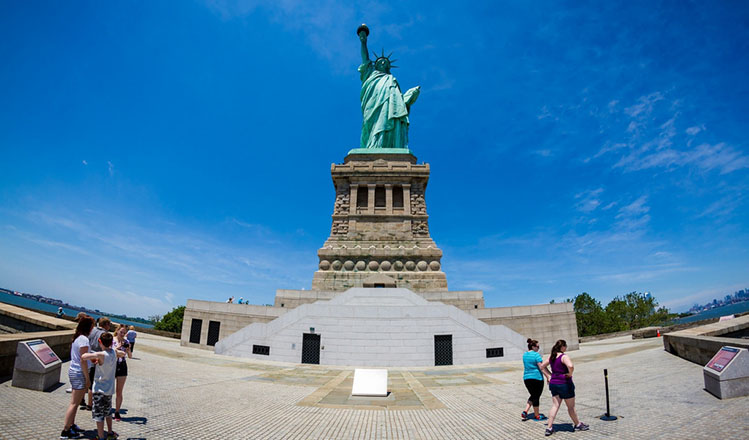China respects religious freedom, but fights extremism: white paper
Updated: 2015-09-24 11:47
(Xinhua)
|
||||||||
BEIJING - China respects and protects the religious belief freedom of people in Xinjiang, but will firmly curb religious extremism in line with the law, a government white paper said Thursday.
"Suppressing religious extremism in accordance with the law is a just move that protects the fundamental interests of the state and the people, including Muslims," said the white paper featuring ethnic equality, unity and development in Xinjiang.
Religious extremists advocate extreme ideas, incite religious hatred and resentment against other religions, and undermine Xinjiang's religious harmony and ethnic unity. They also deny the traditional Islam in Xinjiang, distort and contravene Islamic theology, causing damage to its internal harmony and jeopardizing the fundamental interests of Muslims, it said.
With such heretical ideas as "the shahid (martyr) engaged in jihad (holy war) can live in the garden of Paradise," the religious extremism has turned some individuals, especially the young people, into extremists and even terrorists who are manipulated to frequently perform acts of violence and terrorism and kill innocent people of all ethnic groups, even their fellow Islamic clerics and Muslims, the white paper said.
The autonomous region has always pursued the policy of freedom of religious belief, protecting normal religious activities while strengthening fight against extremism to ensure the people's safety, it stressed.
There are 24,400 mosques with 28,600 clerical personnel in Xinjiang. The central government has allocated over 10 million yuan ($1.6 mln dollars) for maintaining or repairing a number of key mosques and religious sites since the 1980s, the white paper listed.
The Xinjiang Islamic Institute has trained 634 students since its founding in 1987, and since 2001 has held 132 training sessions for 28,665 clerical personnel, it added. By 2014, more than 1.76 million copies of religious classics, books, and magazines, including the Quran, had been published in Uygur and various languages.
- Another corruption suspect repatriated from US to China
- Shanghai slaps three-year ban on entertainers caught doing drugs
- 37 students critical after botched fire drill in NW China
- Man writes Chinese calligraphy using kitchenware
- Brilliant Autumn Urumqi feasting many eyes
- Kids serve as traffic police in C China
- EU pushes through plan to relocate 120,000 refugees amid oppositions
- China, Malaysia conclude first joint military exercise
- Hillary Clinton opposes controversial oil pipeline
- Washington zoo's panda cub growing up
- World leaders to gather at annual UN meeting
- Tsipras returns to fight for Greek economy
-
 Xi visits assembly line of plane manufacturer Boeing in US
Xi visits assembly line of plane manufacturer Boeing in US -
 First Lady tours Fred Hutchson Cancer Research Center
First Lady tours Fred Hutchson Cancer Research Center 
 Boeing to sell 300 planes to China
Boeing to sell 300 planes to China-
 Sino-US ties need more understanding: Xi
Sino-US ties need more understanding: Xi -
 Xi calls for closer cooperation with Washington state
Xi calls for closer cooperation with Washington state -
 Special: President Xi visits the US, attends UN summits
Special: President Xi visits the US, attends UN summits 
 How Chinese tourists and students contribute to the US economy
How Chinese tourists and students contribute to the US economy
 Fun stuff you can't miss about China-US exchanges
Fun stuff you can't miss about China-US exchanges
Most Viewed
Editor's Picks

|

|

|

|

|

|
Today's Top News
Young people from US look forward to Xi's state visit: Survey
US to accept more refugees than planned
Li calls on State-owned firms to tap more global markets
Apple's iOS App Store suffers first major attack
Japan enacts new security laws to overturn postwar pacifism
Court catalogs schools' violent crimes
'Beauty of Beijing's alleys akin to a wise, old person'
China makes progress fighting domestic, international cyber crime
US Weekly

|

|







